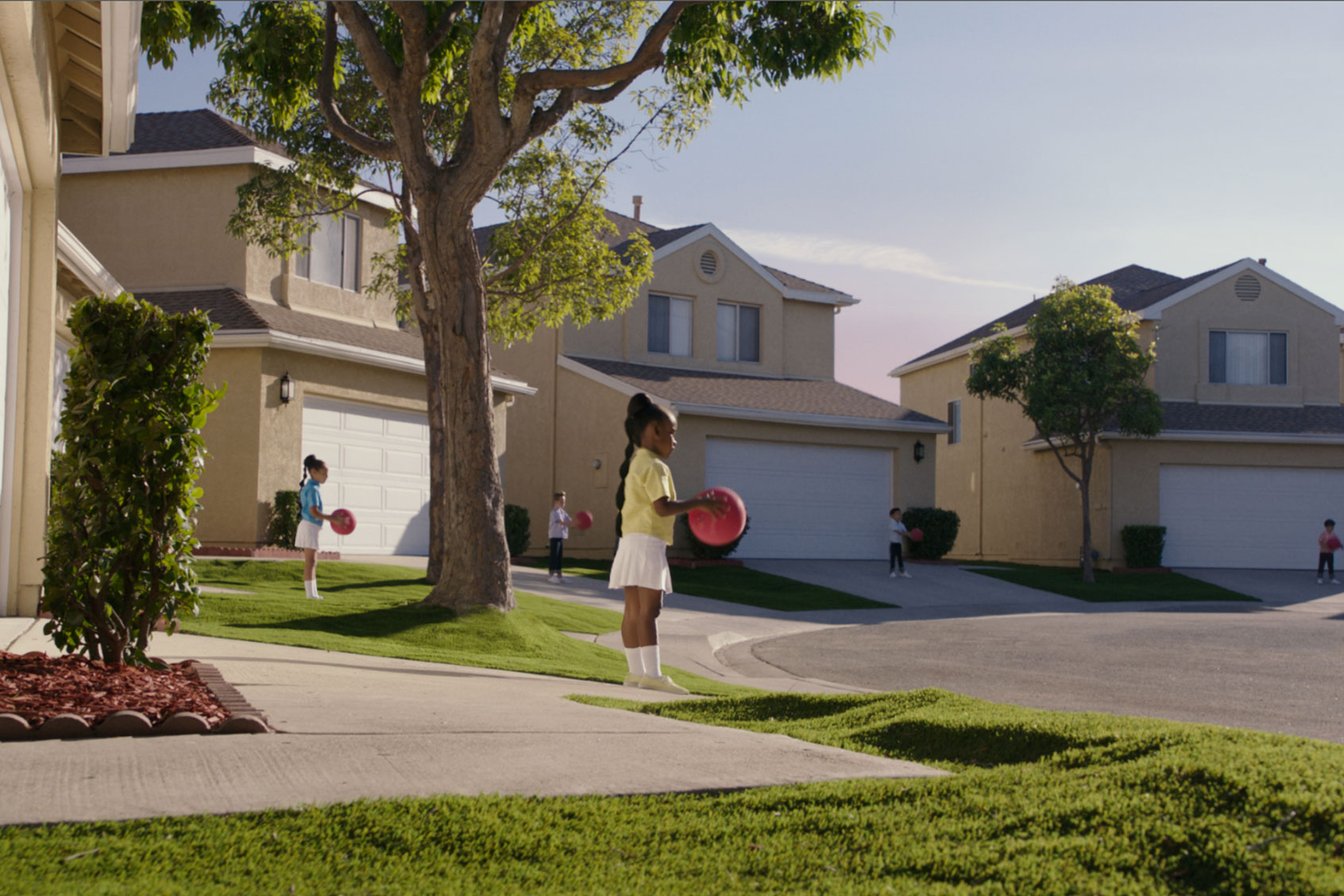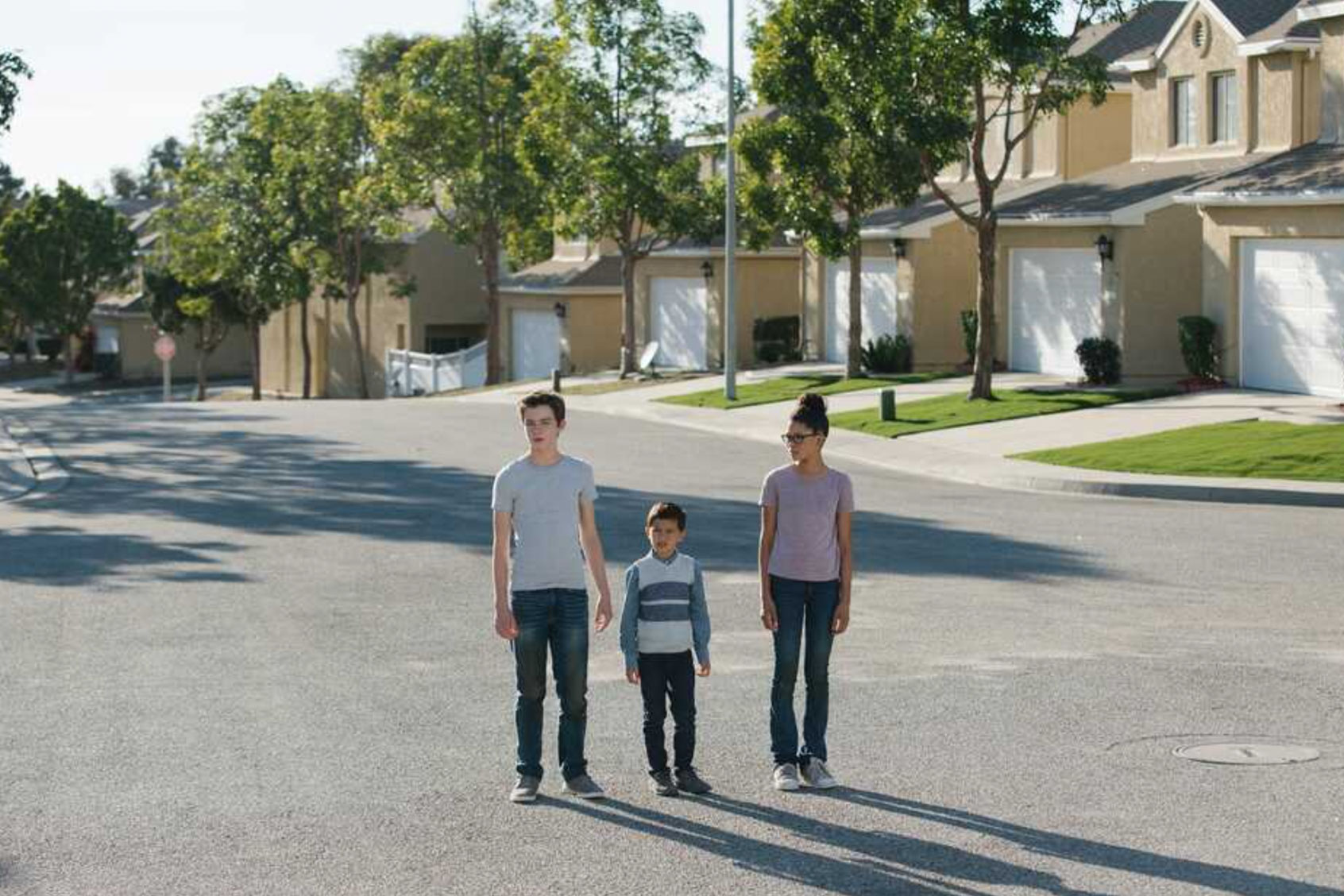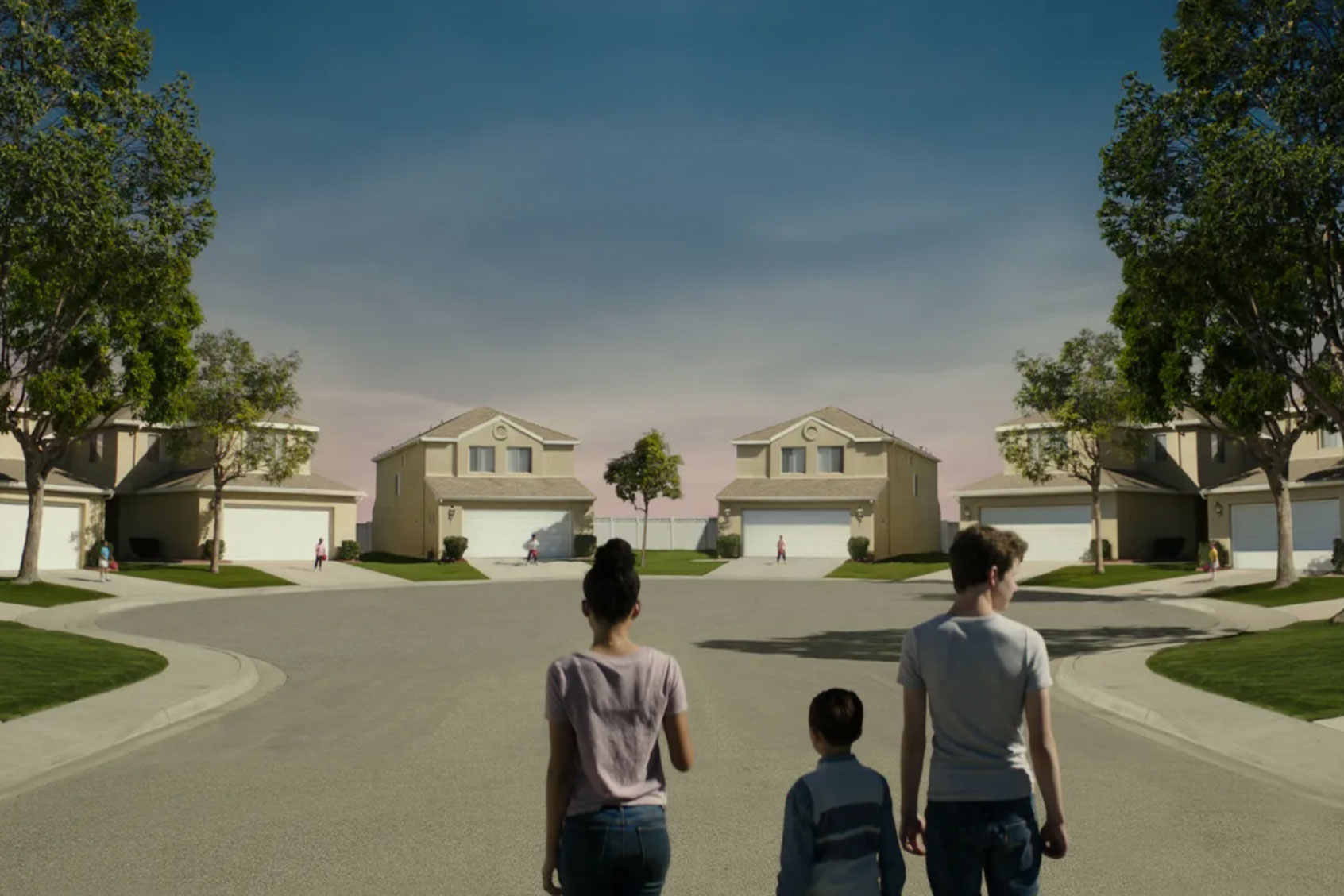Last winter, after another fall sent my father on another trip to the emergency room, he found himself in a nursing home, and I found myself making repeated trips back to the pristine Chicago suburb where I’d spent my adolescence two decades earlier. Not long after I left for college, my parents decamped to Florida, and my brother moved away, too — but they’d all since returned, back to this supposed utopia of highly ranked schools, upscale chain stores and immaculate lawns, my brother to settle down with his own wife and kids, my parents to grapple with my father’s descent into dementia after series of strokes.
I hate it here, I think as I drive.
My father won’t be leaving this nursing home, run by nuns of the Carmelite order (“devoted to the care of the aged and infirm”); he’ll be here until he dies. He doesn’t understand this yet, and might never understand. It’s hard for any of us to grasp, really — his decline so stunningly rapid. Just a year ago, he was still walking and living independently in a riverside townhouse with my Mom.
Driving back and forth from this townhouse, where my mother now lives alone, to the room my father now shares with a 96-year-old priest, I am often filled with rage. Usually, it’s directed at the suburban landscape I’m passing through — this supposedly idyllic place in which I spent a few lonely years, fleeing as soon as I could and not looking back. I hate it here, I think as I drive. I hate the shiny veneer covering everything, the smug safety of it all — the neatly landscaped yards with nary a weed poking up; the smooth sidewalks of the symmetrical housing blocks; even the cheerful kids playing soccer on endlessly lush fields, everything reeking of success and some standardized idea of achievement.
I know my hatred is petty, and largely unfair. All sorts of real things happen in this place, of course; amazing people — bona fide artistic geniuses — and of course family members that I love hail from here. Most locals I’ve known are kind and hard-working and experience the same struggles that people do everywhere else. When I lived here as a teen, I wanted nothing more than to assimilate, to achieve what was expected of me, a fact that embarrasses me now. Is it the persistent illusion of perfection that so infuriates me these days? Or does my loathing stem from the realization that unlike me, some people do live happy, fulfilled lives here? Perhaps my rage is a proxy for my Dad’s, incapable as he is of fighting sufficiently against the dying of the light. Self-reflection does little to diminish the intensity of my feelings. I pass an elderly couple playing frisbee with their grandkids on a lawn so uniform and green it might be Astroturf, stewing in bitterness, and think, I’m like Charles Wallace.
To explain: back in North Carolina, I’m reading Madeleine L’Engle‘s “A Wrinkle in Time,“ a book I loved when I was young, with my 10-year-old son. My seething and scoffing is reminiscent of Charles Wallace Murry’s once his mind is overtaken by the dark forces of an entity known as “IT.” I’m grasping for meaning everywhere these days, trying to make sense of so many things spinning beyond my control, but I keep noticing parallels between the book and my current situation.
Driving through the ‘burbs, past the cookie-cutter regularity of some neighborhoods, I can’t help thinking of the evil planet Camazotz, which I found terrifying as a child even before we’d moved to the Midwest when I was in eighth grade, before I’d ever heard of neighborhood subdivisions with names like Mablebrook II: its eerie semblance of normalcy revealed to be a horrifying forced assimilation. The town the characters come upon in Camazotz looks just like one on Earth, but with an uncanny sameness, “laid out in harsh angular patterns . . . all [houses] exactly alike.” The children skip rope and bounce balls in rhythm, “Over and over again . . . All identical. Like the houses. Like the paths. Like the flowers.”
 A Wrinkle in Time (Disney)
A Wrinkle in Time (Disney)
I’m in Camazotz, I think as I drive to see my Dad. I identify most strongly with the book’s Meg Murry, the ornery teen who not only shares my name and the anguished isolation I felt as an adolescent, but also my emotional reactivity and stubbornness. “Where is my father?” she demands over and over, determined to find Mr. Murry even if it requires travel to distant and dangerous worlds. When she finally locates him, a prisoner on the dark planet, her father looks different: “The expression of his eye was turned inward,” his hair grown long and “shot with gray.” She likens him to a shipwrecked sailor. In his arms at last, “the moment that meant that now and forever everything would be all right,” she soon realizes with shock and sadness that her father can’t fix their situation, that he is “a human being, and a very fallible one.”
It makes sense that upon returning to this place of past and present sorrows, my memories are primarily of the loneliness I experienced here.
How can I not hear echoes of this in my current predicament — the shock of my own father’s physical diminishment (30 pounds in three months), seeing how he struggles to sit up, to hoist his body from bed to wheelchair. I’ve seen the blankness in his eyes during episodes of agitation as he tried to place me in his mind. I’ve tucked him into hospital beds, held his hand and sung lullabies in effort to ease his fear at the thought of another night alone in an unfamiliar place he confused with a prison.
It makes sense that upon returning to this place of past and present sorrows, my memories are primarily of the loneliness I experienced here — something like the “clammy coldness” Meg feels when she tessers through space to arrive at a bleak planet devoid of individuality and devoid of love. My mother, like long-suffering Mrs. Murry in the book, has “tried and tried to find out” — in her case not where her husband was sent on a secret intergalactic mission, but what the next months might hold, what sort of care he is receiving, what the medications he’s taking are doing to him. Instead of over liverwurst sandwiches and warm milk, my mother tells me over a glass of Johnnie Walker that it’s like he’s dying, bit by bit — that he’s starting to forget her. I keep thinking that if we all lived in the same town — if we had always lived in the same town, and never moved; if our entire lives had gone differently, if our society wasn’t the way it is, and we’d all made different life choices, then perhaps my father could be cared for in a familiar house, at least, and we wouldn’t be in this position.
I’m bargaining, I realize — just like Mr. Murry and Calvin O’Keefe do, when Meg decides to return to Camazotz alone to rescue the child they left behind. Only then do I see: the rage I’ve been feeling is a stage of grief.
It doesn’t matter that my father is still alive — or that on many days he’s as lucid and funny as ever, the same clutch Trivial Pursuit teammate who can recall terms that elude the rest of us; he is slowly but steadily leaving, growing more distant every day.
Anger provides structure. I read this in a recent CNN article on the stages of grief. It forms a scaffold to give shape to “the nothingness of loss.” In directing my anger towards a family playing frisbee, I’m giving myself an outlet, something to focus on — in a way, it’s healthy, undeserving though they may be. Just as Meg is told in “Wrinkle” that her faults will be her strengths — her anger and refusal to assimilate ultimately enabling her to escape the all-consuming IT — perhaps my at least recognizing this is a step toward deliverance, though I don’t expect my stormy moods to dissipate any time soon.
“When I find myself in periods of mourning, I like to remind myself I’m going somewhere,” writes J.P. Brammer in an advice column for The CUT on how to handle being romantically ghosted — an experience in which the abruptness and lack of closure can necessitate a very real grieving process. “I’m not going to hurt forever. I am undergoing a transformation.”
Meg’s acceptance of her fate — that she must journey alone back to Camazotz to save her brother — can be seen through the lens of a mourner’s trajectory: though the process can be supported, even shared, it can only be endured at one’s own pace.
I learned from L’Engle that one way to keep from succumbing to darkness is to let myself be vulnerable, to feel everything.
Reading the book now, when Meg’s ability to love is shown as the only way to resist IT’s darkness, I interpret this as acceptance, clarity of vision. Meg sees things as they really are, and in this acceptance — this final phase of grief — she frees herself and her brother from the fog in which they’ve been enveloped.
 A Wrinkle in Time (Disney)
A Wrinkle in Time (Disney)
“Space Travel has made children of us all,” Ray Bradbury writes in an epigraph for “The Martian Chronicles,” another treasured text from my childhood which, like L’Engle’s work, instilled wonder in me via its introduction to the mysteries of the universe. In one story, the crew of an early expedition to Mars are perplexed to find what appears to be an idyllic Midwestern town upon their arrival at the red planet. Their initial wariness at this unlikelihood soon turns to joy when they discover the town is inhabited by loved ones who’d died on Earth. “Is this heaven?” someone asks, and a grandmother says no, “but it’s a world, and we get a second chance.” One by one, the crewmembers are overcome with emotion as they are reunited with long-lost family members. “Mom, Dad!” the gray-bearded captain cries, spotting his parents on a porch; he runs up the steps “like a child to meet them.”
Later that night, though, he can’t help wondering, “How and why and what for?” The situation defies all logic, as much as he and the others might want it to be real. By the time his doubts solidify into certainty, it’s too late. The story ends with a mass funeral, all the humans dead, the beings they thought were their loved ones “shifting now from familiar [things] into something else.”
As a child, I was chilled by the terrifying twist in the story, awed at the possibility of psychic powers and alternate dimensions. As an adult, I see a parable about the inevitability of death — and also the horrors of dementia, a disease that forces us to witness the transformation of loved ones into “something else.”
On subsequent visits to Illinois, I’ll continue to feel waves of rage, guilt and sadness. Such is grief, a messy continuum, no way out but to go through it, something which, like Meg, I must experience on my own. I’ll try to identify these vacillating emotions as they come and to acknowledge them, as I encourage my kids to do. I learned from L’Engle that one way to keep from succumbing to darkness is to let myself be vulnerable, to feel everything. When despair comes, I’ll remind myself that I’m not stuck, I’m going somewhere.
In her 1963 acceptance speech for the Newberry Medal for “A Wrinkle in Time,” Madeleine L’Engle mentions a theory of the universe in which matter “is continuously being created, with the universe expanding but not dissipating. As island galaxies rush away from each other into eternity,” she says, “new clouds of gas are condensing into new galaxies. As old stars die, new stars are being born.” Her point was that literature should have this expansive quality, opening the eyes of children to wonders beyond their comprehension.
Want a daily wrap-up of all the news and commentary Salon has to offer? Subscribe to our morning newsletter, Crash Course.
Science fiction did this for me as a child — gave the ability to conceive of truths more profound and beautiful “than we can understand, with our puny little brains” as Mr. Murry says . I was comforted by books in which vast mysteries confounded even the bravest and most brilliant adults — because being confounded didn’t keep them from trying, from seeking answers and in doing so experiencing growth. I was comforted then by mystery—the idea that the very stars in the sky might be living beings, filling the universe with love and goodness.
It comforts me still.

